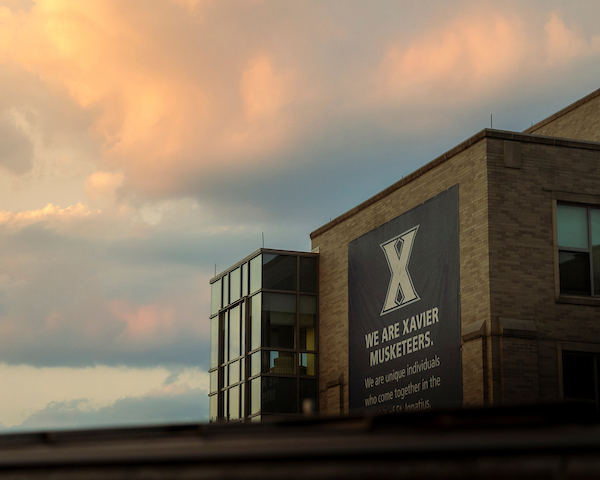Winter college meeting recap
February 27, 2025
With an audience of about 70 faculty and staff, our CAS All-College Winter meeting was well attended. I want to thank everyone who came, and particularly our presenters and those who contributed to the discussion. For everyone who was unable to attend, here is a brief recap of the meeting.
Following Ashley Theuring’s invocation, Amy Whipple offered an overview of our three key curricular initiatives in the humanities: the BA and minor in medical and health humanities (led by Jodi Wyett, already approved by the BoT), the new minor in public diplomacy (led by Jamie Trnka, just approved by BUGS), and the concentration in applied humanities (led by Amy Whipple, on its way toward approval). All three programs make use of existing classes but will also add new courses to build new pathways and bridges among the humanities and toward the social and natural sciences. Thank you, Ashley and Amy!
I offered a brief overview of the budget for Fiscal Year 2026. CAS has been asked to reduce the budget by about $700,000 or 3.2%, which is very much in line with the percentage reductions requested from the other colleges. Assuming that the BoT will approve the university’s proposed budget on February 28, CAS will achieve its budgetary target through a combination of returning currently unfilled faculty positions and reducing our budget for adjuncts and overloads. Once all departments have submitted their curricular plans for AY2526 as part of full-year scheduling, we will be able to determine the future share of each sub-budget.
We had a good conversation about the college’s active scholarship policy. The Faculty Handbook expects the dean to judge whether faculty have met the norms of scholarship to be eligible for research releases. The active scholarship policy does not change this but is meant to make the dean’s judgment more transparent and equitable. The policy leaves room to accommodate special situations and extenuating circumstances—scholarly productive faculty who have hit a temporary dry spell, faculty who are making steady progress in longer-term research projects, faculty whose scholarly projects include multiple students that require ongoing training and supervision, faculty who are starting new areas of exploration, etc. The information gathered though the merit evaluation process puts department chairs in the best position to assess the relative ongoing scholarly productivity of their disciplinary colleagues, and the active scholarship policy provides the foundation for the chairs’ input to guide the dean’s judgment. What is needed in the document that I circulated a few weeks ago is a preamble that specifies this process more clearly.
We discussed how the notions of academic freedom and freedom of speech apply to faculty when they speak for the university and when they speak as citizens. There may be room for clarification of these issues in Xavier University’s Faculty Handbook, as it is also the case with the handbooks that I have encountered at other universities. Academic freedom and the freedom of speech are essential for a liberal arts education, and I am a strong supporter of both principles.
We addressed the college’s efforts to support Ignatian Belonging during these tumultuous times, and the different ways in which CAS will be able to promote the university’s goals of Solidarity and Kinship. Earlier this month and after much discussion, we changed the name of our CASDI committee to CASSK, the College of Arts and Sciences committee for Solidarity and Kinship. We will do our best to ensure that students, faculty, and staff from all walks of life feel welcome and supported in and by our college.
We touched on a number of other topics, including parking, adjunct pay, communications to parents, overly onerous bureaucratic hurdles with regard to spending, the timing of the availability of the fall schedule to students, and the timing of important announcements, which should not be made at 5pm on a Friday.
Our final All-College meeting for the year will be on Monday, April 7, one week before the University Spring Convocation, when we will honor our promotees and retirees. Please mark your calendars for this happy event.
Florenz Plassmann
Dean
